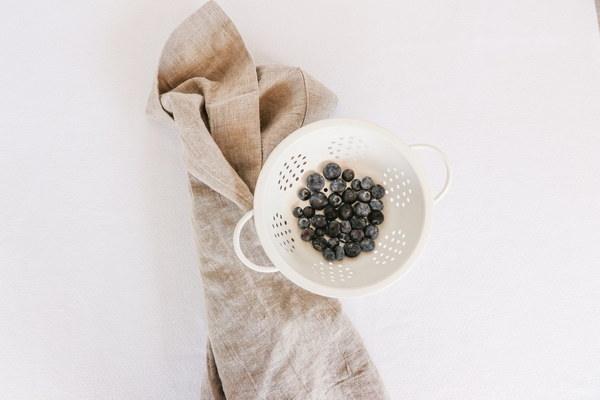Is Increased Discharge Normal When Taking Herbal Remedies for Dampness
Introduction:
The traditional Chinese medicine (TCM) has been widely used for treating various health conditions, including dampness. Dampness is believed to be a common cause of many ailments, and herbal remedies are often prescribed to alleviate its symptoms. However, some patients may experience an increased discharge while taking these herbs. In this article, we will discuss whether an increased discharge is normal when consuming dampness-relieving Chinese herbs.
Understanding Dampness in TCM:
In TCM, dampness is considered an imbalance in the body's fluids, which can lead to various symptoms such as fatigue, weight gain, and digestive issues. To address dampness, TCM practitioners may recommend herbal remedies that help to drain dampness from the body. Some of these herbs include Atractylodes macrocephala, Poria cocos, and Alisma orientale.
Increased Discharge as a Side Effect:
One of the potential side effects of taking dampness-relieving herbs is an increased discharge. This is because these herbs can stimulate the body's natural processes, leading to a higher output of bodily fluids. While an increased discharge may be concerning for some individuals, it is often considered a normal response to dampness-relieving herbs.
Why Does It Happen?
When you consume dampness-relieving herbs, they work by increasing the body's fluid output. This can lead to a higher discharge, as the herbs help to expel dampness from the body. In some cases, this increased discharge may be accompanied by a change in color or consistency, which can be unsettling for some patients. However, these changes are generally temporary and should not cause long-term concerns.
When to Worry:
While an increased discharge is often a normal response to dampness-relieving herbs, there are certain situations where you should seek medical advice. If you experience any of the following symptoms, it is important to consult with a healthcare professional:
1. Unusual odor: If your discharge has an unpleasant smell, it may be a sign of an infection.
2. Severe pain: Pain during urination or sexual intercourse may indicate an underlying condition.
3. Persistent discharge: If the increased discharge continues for an extended period, it may be a sign of an infection or other health issues.
Precautions and Tips:

To minimize the risk of complications and ensure a safe experience while taking dampness-relieving herbs, consider the following precautions and tips:
1. Consult a healthcare professional: Before starting any new herbal treatment, it is essential to consult with a healthcare provider or a TCM practitioner. They can assess your condition and recommend the most appropriate herbs for your specific needs.
2. Monitor your symptoms: Keep track of any changes in your discharge, as well as other symptoms related to dampness. If you notice any concerning changes, inform your healthcare provider promptly.
3. Maintain good hygiene: To prevent infections, practice good hygiene, including regular washing of the genital area and using clean towels.
Conclusion:
In conclusion, an increased discharge is often a normal response when taking dampness-relieving Chinese herbs. These herbs work by promoting the body's natural processes to expel dampness, which can lead to a higher fluid output. However, it is important to monitor your symptoms and consult with a healthcare professional if you experience any concerning changes. By taking these precautions, you can safely enjoy the benefits of dampness-relieving herbs while minimizing the risk of complications.









